McMaster innovators team up through Innovation Matchmaking Program for cross-disciplinary health solutions
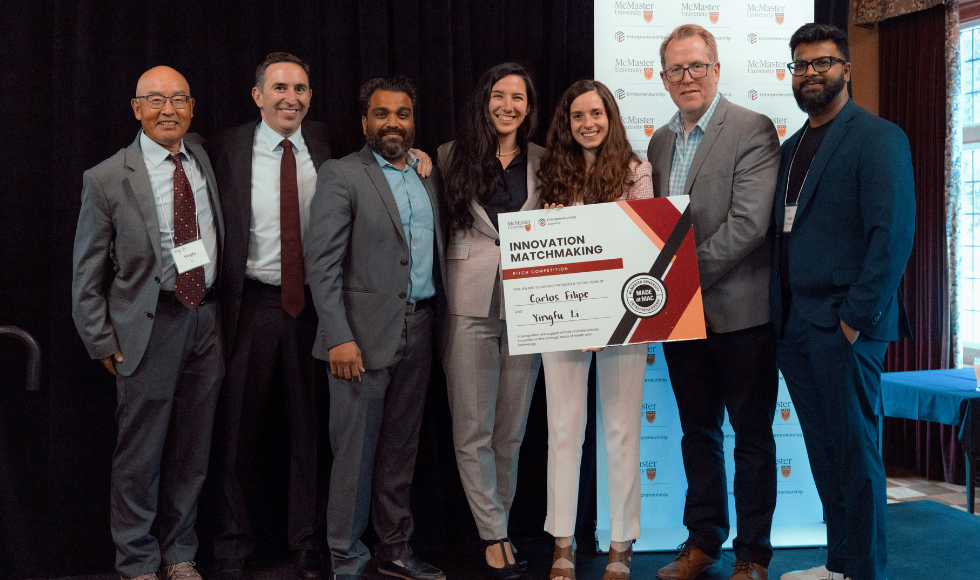
Yingful Li, left, and Carlos Filipe, next to him, are leading one of the four teams that won the Innovation Matchmaking competition.
June 11, 2024
Eight multidisciplinary research teams pitched their cutting-edge health technologies as part of McMaster’s Innovation Matchmaking program.
Launched this year, the program connects researchers from McMaster and its affiliated hospitals to work together to develop and commercialize a technology solution that tackles a pressing health challenge.
Teams competed in a pitch-style competition for $75,000 in prep-funding that can be used to build investable ventures based on their technologies.
The program is hosted by the McMaster Entrepreneurship Academy, in partnership with Hamilton Health Sciences (HHS) and the Research Institute of St. Joe’s Hamilton (St. Joe’s), with funding support from the Faculty of Engineering.
It’s one of several initiatives offered by the Academy aimed at helping McMaster researchers move their inventions from the lab to the market, says Leyla Soleymani, Associate Vice-President, Research (Commercialization & Entrepreneurship).
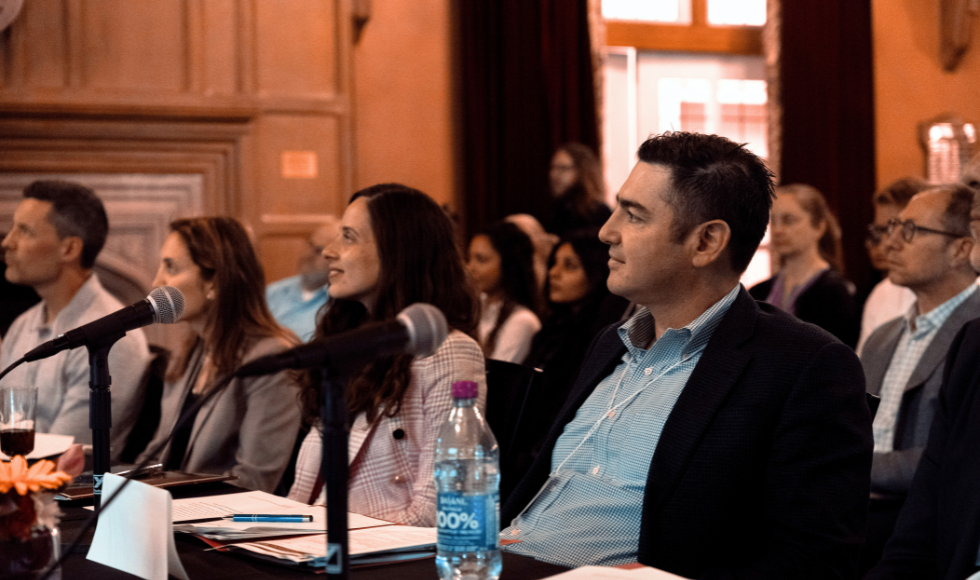
“The Innovation Matchmaking program is designed to foster fruitful collaborations between research leaders from McMaster and our partners at HHS and St. Joe’s — with the goal of helping them translate their technologies into successful startup companies,” Soleymani says.
“We’re thrilled to support our awardees with this investment and commend them for all the work they do to ensure their innovations reach the clinicians and patients who will benefit from them most.”
The teams pitched a wide range of tech solutions aimed at improving health care.
Here are the four winning projects:
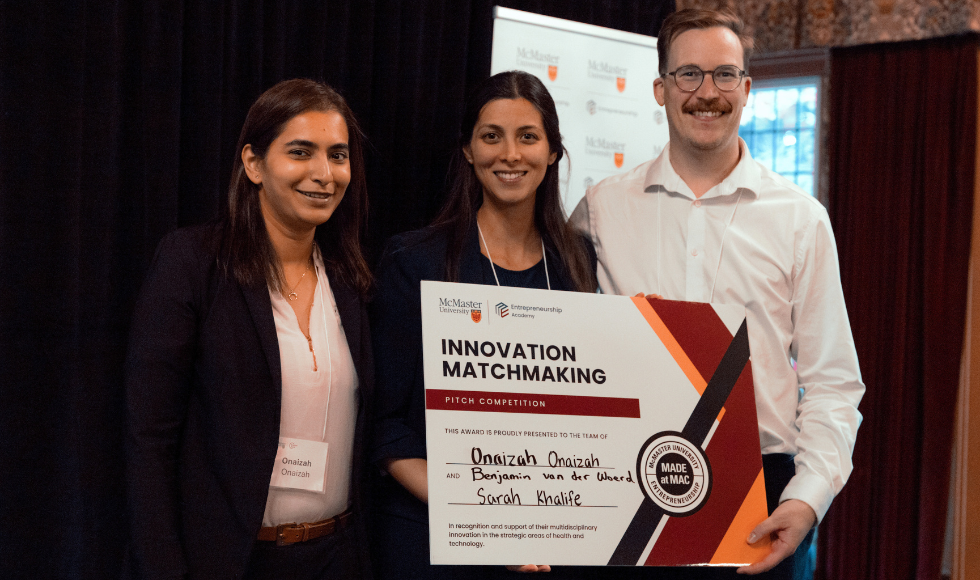
A high-precision robotic surgical technology : Onaizah Onaizah, Computing & Software; Sarah Khalife, Surgery; Benjamin van der Woerd, Surgery.
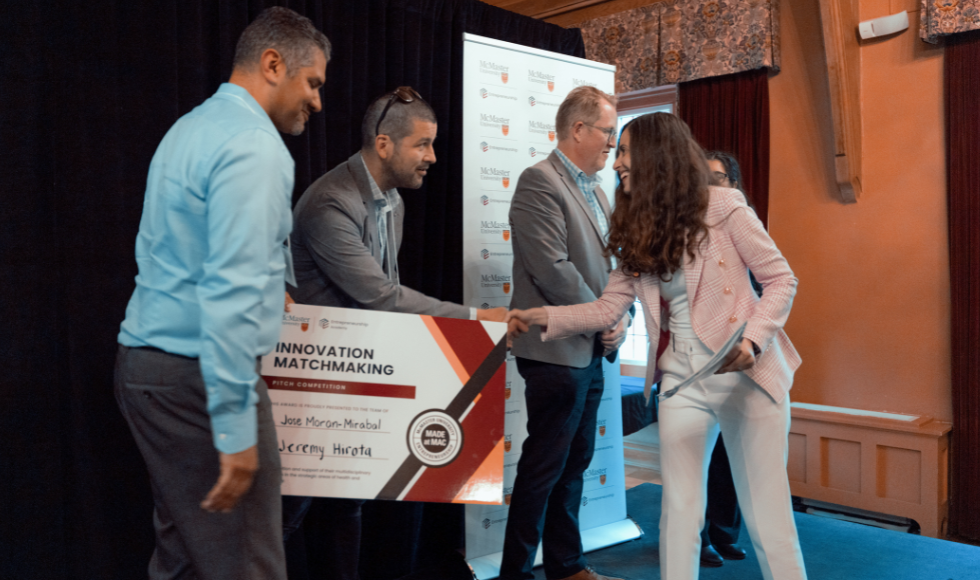
An ink technology for printing tissues that would be used for drug testing: Jose Moran-Mirabal, Chemistry & Chemical Biology; and Jeremy Hirota, Medicine.
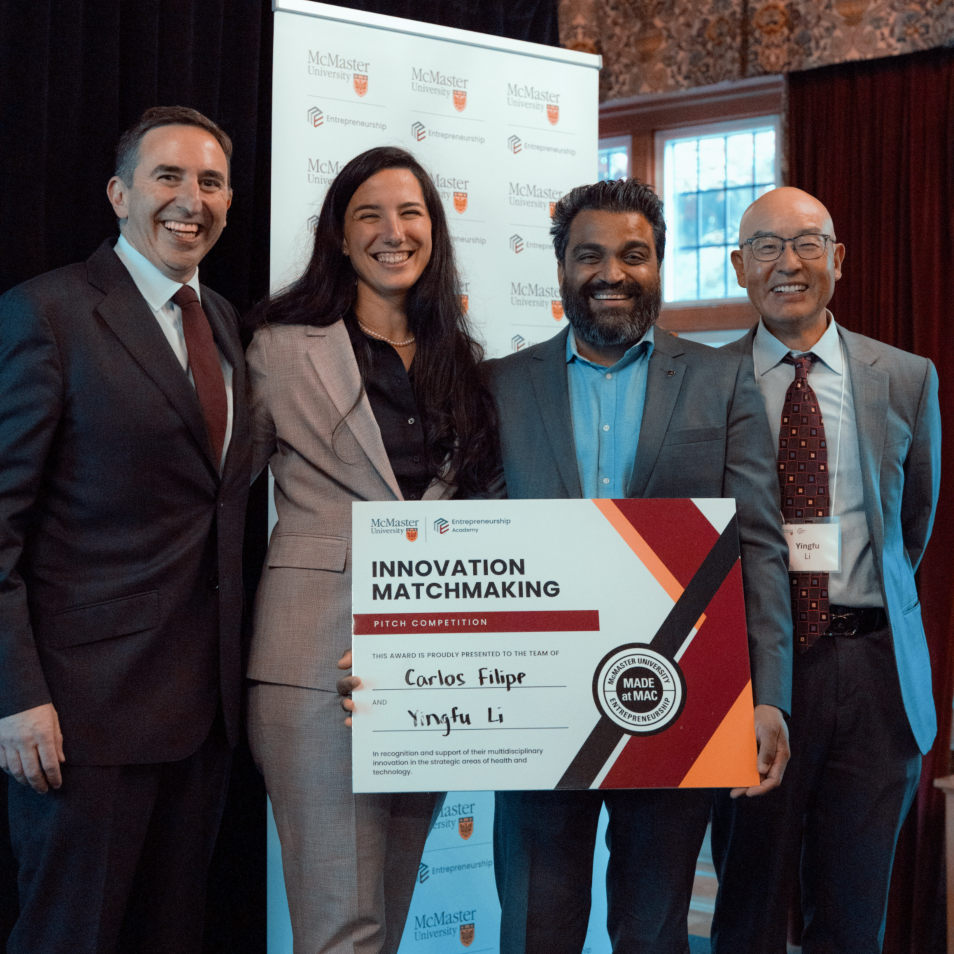
Rapid diagnostic technologies for colorectal cancer: Carlos Filipe, Chemical Engineering; Yingfu Li, Biochemistry & Biomedical Sciences; Rahul Chaudari, Chemical Engineering; Letizia Dondi, Biomedical Engineering.
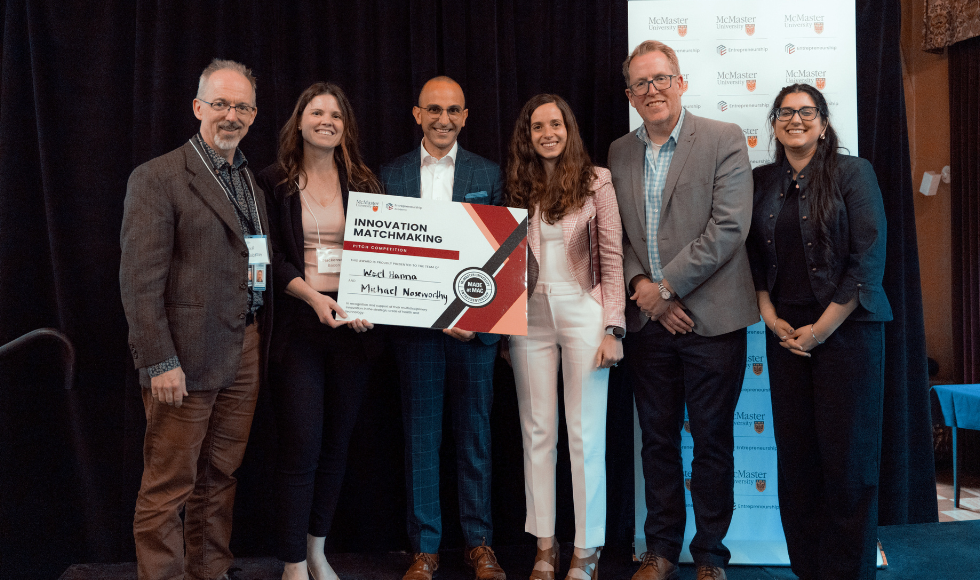
Screening technologies that leverage AI and machine learning to detect diseases like lung cancer: Waël C. Hanna, Surgery and Health Research Methods, Evidence and Impact; and Mike Noseworthy, Electrical and Computer Engineering.


